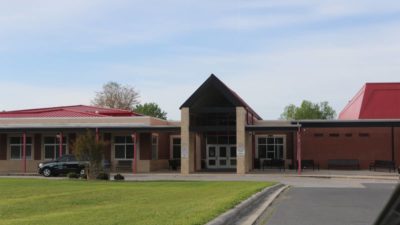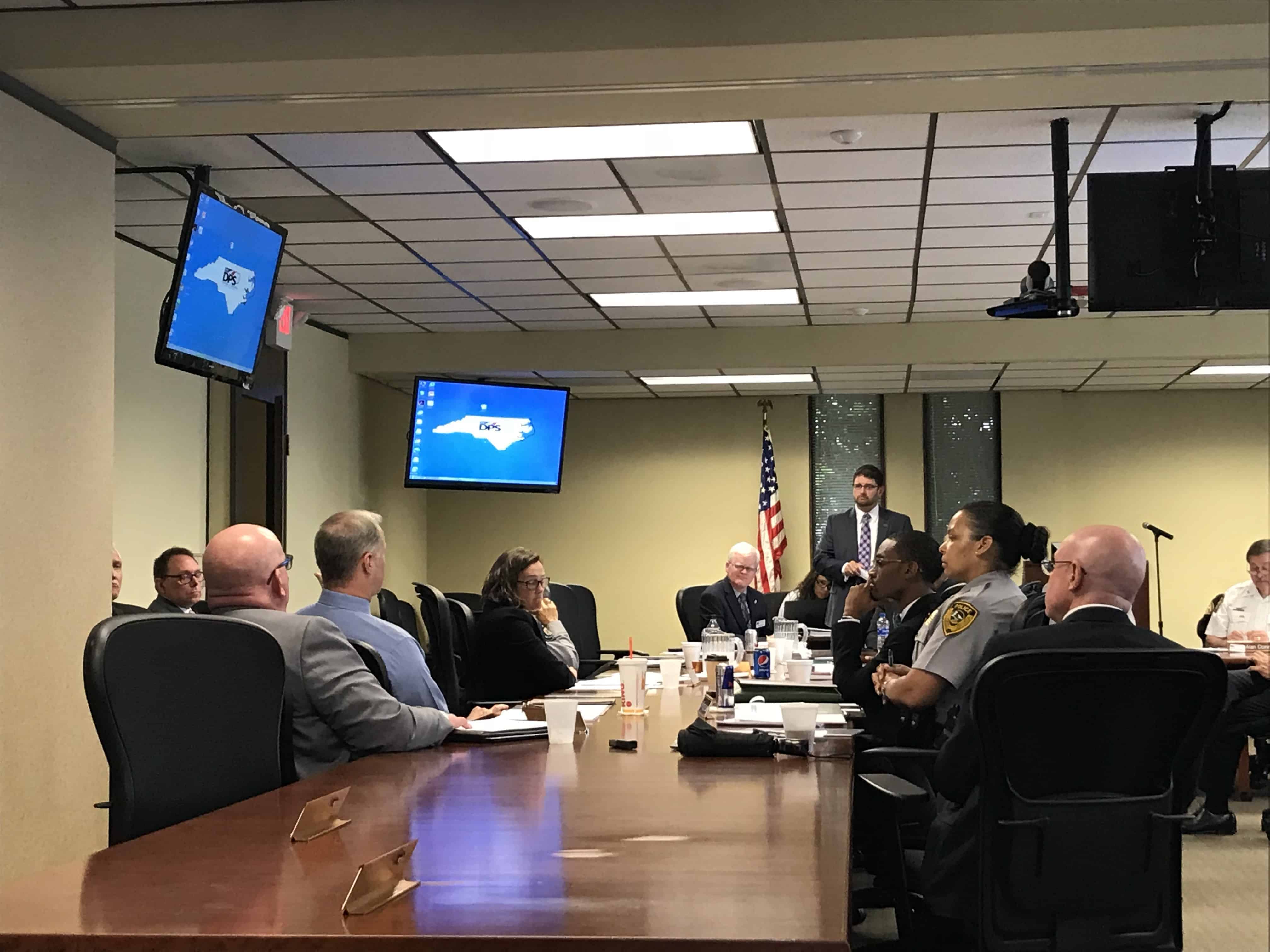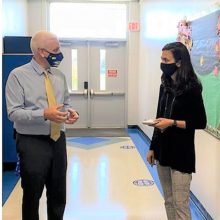In light of recent school shootings, the Governor’s Crime Commission established a special committee to identify resources and develop recommendations to strengthen school safety at the request of the Secretary of Public Safety Erik Hooks.
The Special Committee on School Shootings is co-chaired by Sheriff Donnie Harrison of Wake County and Sheriff Alan Cloninger of Gaston County. Committee members are representatives from law enforcement, juvenile justice, courts, schools, and other departments.
Hooks emphasized that the committee is not working in a silo; both the House Select Committee on School Safety and the State Emergency Response Commission are discussing similar topics, and Hooks hopes they share information to come up with long-term solutions.
“I’ll be the first to say that this is not just a law enforcement solution or designed for law enforcement alone. We may stand at the tip of the spear when things happen, but it takes all of us to work collaboratively on this issue and that means in schools, that means with our mental health professionals, and that means with leaders all across the state,” said Hooks. “Sharing information is key to moving this forward.”
During the committee’s first meeting on Monday, representatives from the North Carolina Justice Academy presented on two subjects: law enforcement protocol for active assailant situations and school resource officer (SRO) training programs.
Floyd Yoder, a training manager at the Academy’s Edneyville Campus, emphasized the importance of law enforcement response time in active assailant situations. According to Yoder’s presentation, 70 percent of active shooter situations end in five minutes or less.
While law enforcement protocol was previously to wait for four law enforcement officers before entering an active assailant situation, Yoder says that is no longer the case. He stressed the importance of officers responding as quickly as possible — a tactic called rapid deployment — even if they are moving in alone.
Patrice Andrews, chief of police in Morrisville, said the once-a-year rapid deployment training is not sufficient minimum training to equip law enforcement with the necessary expertise they need to fall back on during high-stress situations.
“This is low-hanging fruit,” said Andrews. “We could be looking at training every quarter. When it all goes bad, you’re going to fall back on what your mind knows.”
Trevor Allen, director of the North Carolina Justice Academy, presented information about the training programs and certifications the Academy offers, including solo active shooter courses, rapid deployment training, basic SRO training programs, advanced SRO survival classes, and SRO certificate programs.
None of these training programs are required for SROs, but Allen estimated the Academy has trained about 400 SROs in the basic training program over the last three years. As of 2015, it was estimated that there were about 1,000 SROs in North Carolina.
Sheriff Charles Blackwood of Orange County voiced concerns about the perception of SROs.
“The days of us as law enforcement leaders accepting the idea that we’ll just get part-time folks to take care of our kids is gone and over. We’re talking about the most vulnerable population who are often the least protected,” said Blackwood. “We as law enforcement agency have got to change the paradigm about the way we look at this.”
Cloninger closed the meeting by noting the five key areas that will frame the beginning of the committee’s work: training, school physical security, threat intelligence, law enforcement and school cooperation, and changing statutes such as having a gun seizure protective order.
The co-chairs requested committee members take time to reflect on the meeting and then submit the five to 10 areas of concern they believe the committee should examine. No future meeting schedule has been set.
Recommended reading




